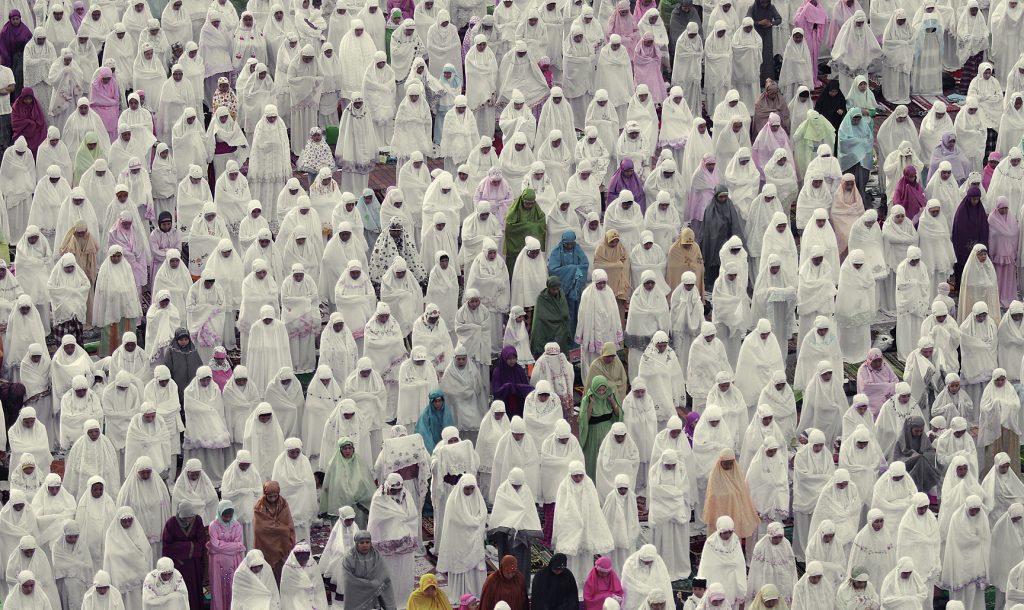Over the 20 years since Indonesia’s transition to democracy, commentators have sounded the alarm about the incursion of Islam into public life. Bolstering their case was the 2017 gubernatorial race in Jakarta, which swept Anies Baswedan to power following a campaign that unabashedly stoked religious sectarianism for political gain. Skeptics say these concerns are overhyped, however. Islamist parties—PKS, PPP and PBB—have championed socially conservative policies like prohibition and the mandating of religious dress. Yet they have never garnered more than 20% of votes in Indonesia-wide contests.
So far, this debate has mostly centred on national and provincial politics. But Indonesia is a decentralised polity in which local governments wield vast authority. Few deny that high concentrations of Islamist voters exist in numerous pockets across the Indonesian archipelago. There, hardline religious politicians have often gone on to capture local power.
Does Islamist rule in these lower branches of government affect relations between religious groups? In a new paper, we evaluate what happens when Islamist political parties win power locally. Does the election of Islamist legislators boost incidents of religious violence, while increasing expressions of intolerance toward religious minorities?
Our focus is on partisan representation in district legislatures (DPRD-II) over two election cycles: 2004–9 and 2009–14. We gathered and digitised the raw electoral returns for all district-level local contests—data which we have also made publicly available for the first time. We then combined this data with reports of local-level violence, as well as survey data measuring citizens’ self-reported attitudes toward minority groups.
Measuring the effect of electing Islamist legislators on citizens’ attitudes and behaviours is inherently difficult. We can’t simply compare violence and attitudes in areas where Islamists pick up more or fewer votes, because any two areas differ along a host of other dimensions. Problematically, any one of these dimensions might directly impact the phenomena we are interested in.
Instead, we look at a special subset of elections: those where an Islamist candidate squared off against a secular nationalist candidate in a very close race for the last seat in a DPRD-II constituency. Owing to Indonesia’s electoral rules, these races are decided by strikingly narrow margins—often fewer than 20 votes. We argue that the outcome of these tight races is essentially a matter of blind luck: the product of chance factors like election-day weather. If true, comparing average levels of violence and intolerance in places where Islamists narrowly won with places where they narrowly lost gives us a reliable test of the impact of Islamist rule.
What did we find? The first thing to note is that religious violence was quite rare in Indonesia across both election cycles. Relatively few constituencies saw such violence during this period. We did detect some signs that having an additional Islamist win local office contributed to an increase in violence. But the effect was small in magnitude and inconsistent, varying depending on the dataset we examined (for example, the newspaper or village census).
The findings on people’s attitudes were similarly slight. People in surveys were asked several questions about how they would feel if someone of a different religion moved into the village or neighborhood, rented a room in their house, built a place of worship in their community, or asked to marry their child or close relative. Electing an Islamist candidate increased the share of respondents offering the most intolerant answer to at least one of these queries, yet there was little change in responses to individual questions.
Interestingly, the presence of an extra Islamist in local office made respondents more likely to offer an intolerant response when a bystander was present during their interview. This finding suggests the possibility that local Islamists might exacerbate religious tension by making it more socially acceptable to express intolerant opinions about minorities.
Overall, electing Islamist legislators likely has adverse but substantively small effects on local relations between Indonesia’s religious groups. The representation of Islamist legislators in local governments may pose some danger to Indonesia’s historically pluralist social contract, though not on a level that detractors commonly claim. We should highlight though that our statistical results were mixed, and the timeframe of our study limited. More research is needed to build a fuller picture of how parties professing hardline religious ideologies mould society in young democracies.
The original paper is published in the British Journal of Political Science and is available here (gated) and here (ungated)
 Facebook
Facebook  Twitter
Twitter  Soundcloud
Soundcloud  Youtube
Youtube  Rss
Rss 


